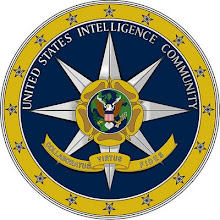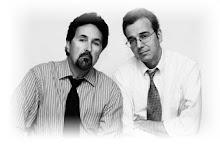By Steve Hammons
Human perception is related to a broad range of important endeavors in fields like health, media, national defense and many other areas.
New developments in human perception and consciousness have the potential to help us make progress on these and other fronts.
Perception is personal and also social. It affects families, communities, countries and the international community. Our perception and understanding of ourselves are key in the areas noted above, and in many other ways.
We can take a look at a few examples to see how human perception affects progress in various activities and areas of interest.
HEALTH, HOLLYWOOD, DEFENSE
In the area of health, when well-known health-and-wellness expert and author Andrew Weil, M.D., appeared on CNN’s “Larry King Live” show on Sept. 10, he tried to apply his concepts of “integrative medicine” to the current national debate about health care.
Weil is the founder and director of the Arizona Center for Integrative Medicine at the University of Arizona College of Medicine in Tucson. He also serves as a professor of medicine and public health.
Another example is the new movie "Men Who Stare at Goats" starring George Clooney, Ewan McGregor, Kevin Spacey and Jeff Bridges. This film takes a look at innovative exploration of human consciousness within the U.S. military.
Although the movie and the book upon which it is based are reportedly slanted toward ridicule, many of these actual military and intelligence programs turned out to be quite valid and valuable. People who see the movie might become curious about these important and leading-edge efforts behind the scenes and explore them further.
As Navy Adm. Mike Mullen, current chairman of the Joint Chiefs of Staff, recently noted, the perception of the U.S. internationally is an area of concern, despite recent progress. “Strategic communication” is directly linked to human perception.
In fact, in a paper for the Marine Corps War College some years ago, a Navy SEAL officer studying there noted that “transcendent warfare” may be a useful concept that optimizes forward-leaning research and activities in human perception and consciousness.
INTEGRATIVE MEDICINE
When Dr. Weil was discussing his views of health with King on CNN, he explained some of the ideas of integrative medicine. The concept of integrative medicine is similar to “alternative medicine” or “complementary medicine.”
Weil believes that leading-edge health and wellness methods can be successfully integrated with conventional Western medicine.
In his discussion with King, he suggested that Americans should take more responsibility for their own health and wellness through healthier eating habits, more exercise and other common-sense approaches.
He stated that the over-reliance, in his view, on high-tech and expensive technological and pharmacological methods to treat health problems is unsustainable and not always particularly successful medically.
Weil seemed to be saying that physicians and health care providers, government officials crafting health care proposals and all of us should consider “integrative” viewpoints when thinking about human health and the administration of health care services.
According to the website of the Arizona Center for Integrative Medicine, “Since its inception, the Arizona Center for Integrative Medicine has focused its efforts on three domains: education, clinical care, and research—with the primary emphasis on education.” The site notes that the “Defining Principles of Integrative Medicine” include the following:
1) Patient and practitioner are partners in the healing process.
2) All factors that influence health, wellness, and disease are taken into consideration, including mind, spirit, and community, as well as the body.
3) Appropriate use of both conventional and alternative methods facilitates the body's innate healing response.
4) Effective interventions that are natural and less invasive should be used whenever possible.
5) Integrative medicine neither rejects conventional medicine nor accepts alternative therapies uncritically.
6) Good medicine is based in good science. It is inquiry-driven and open to new paradigms.
7) Alongside the concept of treatment, the broader concepts of health promotion and the prevention of illness are paramount.
8) Practitioners of integrative medicine should exemplify its principles and commit themselves to self-exploration and self-development.
MOVIES, MINDS, INTELLIGENCE
Related to Weil’s views, we might wonder if this integrative perspective or integrative consciousness is applicable in other areas.
Although Weil is now best-known for his work in health, wellness, nutrition and integrative medicine, his 1972 book "The Natural Mind" focused on human consciousness.
This actually dovetails with the movie "Men Who Stare at Goats" and the real-life activities by the U.S. defense and intelligence communities regarding human perception.
Discoveries in the last few decades about human perceptual abilities have found that our instincts, intuition, gut feelings, extrasensory perception (ESP) and “sixth sense” appear to be quite real and valid.
A longstanding effort by the U.S. defense and intelligence communities commonly referred to as Project STAR GATE found that humans have the capability to use “anomalous cognition” or unusual perception to gather intelligence. A specific protocol that was developed to do this came to be called “remote viewing.”
As our understanding about human perception and consciousness improves, it may become apparent that anomalous cognition is really not so unusual after all. Like the study of the health concepts of alternative and complementary medicine, the terms “alternative cognition” and “complementary cognition” might be more appropriate
In fact, taking note of Weil’s perspectives, we might consider the term “integrative cognition” or “integrative perception” to describe using the full range perceptual abilities and capabilities of human consciousness.
This also brings us back to Adm. Mullen’s concerns about important defense challenges in understanding our own internal and external national behavior and how this is perceived overseas.
By examining some of these innovative areas, we can surely make significant progress in many important fields to deal with challenges facing us today.
skip to main |
skip to sidebar

In the past 30 days, readers from approximately 40 countries or territories using about 20 languages visited the Joint Recon Study Group site.

To see more articles, scroll down the right-side column.

Steve Hammons

Articles from the Joint Recon Study Group site and Transcendent TV & Media site are included.
The Joint Reconnaissance Study Group is the San Diego-based, combined-service/agency, research-and-activities team in my novels "Mission Into Light" and sequel "Light's Hand." This site contains information of interest to the JRSG.
Home page: Joint Recon Study Group site
Readers from around the world visit this site.

In the past 30 days, readers from approximately 40 countries or territories using about 20 languages visited the Joint Recon Study Group site.
April 2021 threat alert: ‘Force protection’ for our troops now the responsibility of all Americans
First responders must deal with society’s problems, shortcomings, injustices every day
Could some UFOs be linked to Native American 'white stone canoe' legends, stories?
Wildland firefighter basic training available at community colleges, tech schools, training centers
‘Boomer remover’ coronavirus is bigger threat to WWII generation that saved the world
‘Black swan’ events that aren’t: Coronavirus, climate emergency, unidentified aerial phenonema
Reagan’s complete 1987 UN message on ‘alien threat’ overlooked: Grave danger here, now
Was Reagan briefed about UFOs and original ‘Day the Earth Stood Still’ movie?
My military draft lottery number was #165 during final Vietnam War years
“Keep On The Sunny Side,” by The Whites, from movie O Brother, Where Art Thou?”
Living along Ohio River for centuries, Native Shawnee called it ‘Kiskepila Sepe’ – ‘Eagle River’
Native American words around us: States, towns, rivers, lakes, terrain, plants, animals, military
Athens County, Ohio, was key spot when colonists, Redcoats fought Shawnee in 1774 battle
1787 Northwest Ordinance set course for Ohio, Indiana, Illinois, Michigan, Wisconsin, Minnesota
Smallpox-tainted blankets were 1763 bioweapon on northern Appalachian Mountains frontier
Diana Krall performs “Maybe You’ll Be There" live in Paris with Paris Symphony Orchestra 2001.
Books to read in 2021? Novels "Mission Into Light" and the sequel "Light's Hand"
Novel excerpt: Renew, prepare America with ‘Urgent Response Group’ for teens, young adults
Diana Krall performs “I Get Along” live in Paris with Paris Symphony Orchestra 2001.
Steve Tyrell sings “Give Me the Simple Life.”
Diana Krall performs “Love Letters” live in Paris with Paris Symphony Orchestra 2001.
Visit the article archives!

To see more articles, scroll down the right-side column.
Novel "Mission Into Light" overview on Amazon
Novel "Light's Hand" overview on Amazon
Adventures of the Joint Recon Study Group: Overview and synopses of activities and operations
Key chapter overviews: Points of interest in the novel "Mission Into Light"
Key chapter overviews: Points of interest in the novel "Light's Hand"
Multimedia rights available
English and foreign-language book rights, audio book and e-book rights for "Mission Into Light" and "Light's Hand" are available. Movie and TV rights are available.
I'm seeking agent representation for these works and rights.
Please contact Steve Hammons for more information at hammons55@gmail.com.
Feature film screenplay
I completed a feature film screenplay in 2006 based on “Mission Into Light” and “Light’s Hand” combining key elements of both novels.
The screenplay takes audiences into the adventures and discoveries of the Joint Recon Study Group and the relationships among team members, friends and associates as they explore leading-edge research and emerging transcendent developments.
I'm seeking agent representation for this screenplay.
.........................
I also wrote a TV series pilot script based on "Mission Into Light" and "Light's Hand" story. I'm seeking agent representation this script.
About the Author

Steve Hammons
About the Author
I was born and raised in southwestern Ohio near the Kentucky and Indiana borders, then went to college at Ohio University in the southeastern Appalachian region of the state near West Virginia.
I graduated with a dual major in communication (journalism focus) and health education (psychology focus) with a minor in pre-law.
Ohio U. is home to the respected Scripps College of Communication and E.W. Scripps School of Journalism.
I also completed two graduate-level courses in guidance counseling theory and method at Ohio U.'s College of Education, School of Applied Behavioral Sciences and Educational Leadership.
At the end of my undergraduate education at Ohio University, I moved to the beautiful American Southwest where I applied my education, continual training and and ongoing experience to related professional fields such as health care, journalism and special research areas.
My novels "Mission Into Light" and the sequel "Light’s Hand" are available in e-book and 6"x9" paperback from most online booksellers worldwide.
Readers review metaphysical-military-intelligence adventure novel ‘Mission Into Light’
My articles on DoD CultureReady blog, Defense Language and National Security Education Office
Transcendent TV & Media site
Past articles: Scroll down the right-side column for more articles.

Articles from the Joint Recon Study Group site and Transcendent TV & Media site are included.































































































































































































